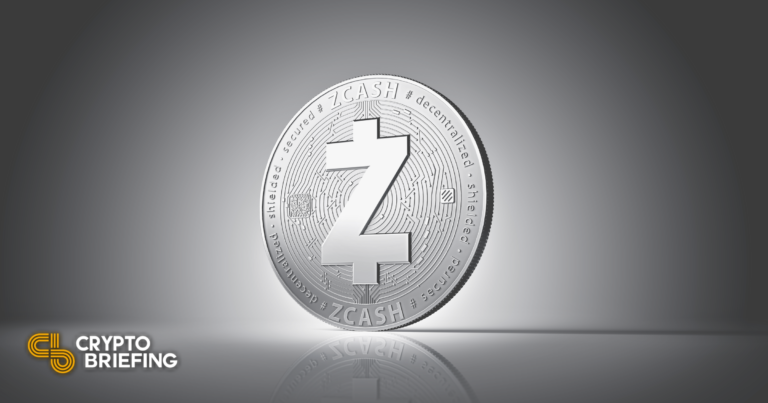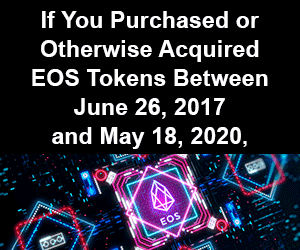Privacy Coin Zcash Weighing Proof-of-Stake Move

Key Takeaways
Zcash founder Zooko Wilcox wants to move Zcash to Proof-of-Stake.
The primary concern isn’t the environment, but greater security at a lower cost.
Wilcox believes the value proposition of privacy coins has never been greater than now.
Share this article
Zcash is considering moving away from the energy-intensive Proof-of-Work consensus algorithm to the lighter, faster, and more eco-friendly Proof-of-Stake, Zooko Wilcox told Forbes.
Zcash Founder Says Proof-of-Stake is Proven
Zcash may be ditching Proof-of-Work in favor of Proof-of-Stake.
The plan to change the privacy coin’s consensus algorithm comes more than two years after user rebekah93 first proposed the move in a Zcash Improvement Proposal (ZIP) to the community.
Proof-of-Stake is a mechanism used to secure blockchains. Unlike Proof-of-Work blockchains like Bitcoin, which rely on an energy-intensive mining process, Proof-of-Stake allows users to secure the network by staking crypto tokens rather than providing computational power. In Proof-of-Stake blockchains, validators are randomly selected to add new blocks to the chain instead of having miners compete to find the block’s hash fastest. Ethereum is planning a merge to Proof-of-Stake as part of its Ethereum 2.0 upgrade, and most newer blockchains that have launched in recent years use Proof-of-Stake over Proof-of-Work.
According to founder Zooko Wilcox, Zcash is starting to think about the potential transaction. He told Forbes that the consensus algorithm is now “proven” and has already been successfully implemented in a number of cryptocurrencies, including Cardano, Cosmos, Algorand, and Tezos.
While Wilcox acknowledged the environmental concerns surrounding Proof-of-Work, his primary motivations for the shift have more to do with the greater—to his belief—security and performance benefits Proof-of-Stake offers. He said:
“I think Proof-of-Work has some security flaws, as has been demonstrated by the 51% attacks that have occurred (when a miner controls a majority of computing power on the network and can steal tokens). And I think Proof-of-Stake can provide a much more powerful kind of security and at a lower cost.”
His views on the security proposition of the Proof-of-Stake consensus mechanism are in line with Ethereum’s founder Vitalik Buterin. Both argue that 51% attacks are much easier to recover from in Proof-of-Stake protocols because bad actors can quickly be identified, and the community can coordinate to slash the attacker’s funds in a “minority user-activated soft fork.” The same process requires a hard fork and is significantly harder to execute in Proof-of-Work-based systems.
Since the Forbes interview, Wilcox has published a blog post via Electric Coin Company, the company that launched Zcash, titled “Should Zcash switch from Proof-of-Work to Proof of Stake?” In it, Wilcox presents several arguments of the supposed merits of the move, including improvements in security, energy efficiency, and decentralization.
Share this article
The information on or accessed through this website is obtained from independent sources we believe to be accurate and reliable, but Decentral Media, Inc. makes no representation or warranty as to the timeliness, completeness, or accuracy of any information on or accessed through this website. Decentral Media, Inc. is not an investment advisor. We do not give personalized investment advice or other financial advice. The information on this website is subject to change without notice. Some or all of the information on this website may become outdated, or it may be or become incomplete or inaccurate. We may, but are not obligated to, update any outdated, incomplete, or inaccurate information.
You should never make an investment decision on an ICO, IEO, or other investment based on the information on this website, and you should never interpret or otherwise rely on any of the information on this website as investment advice. We strongly recommend that you consult a licensed investment advisor or other qualified financial professional if you are seeking investment advice on an ICO, IEO, or other investment. We do not accept compensation in any form for analyzing or reporting on any ICO, IEO, cryptocurrency, currency, tokenized sales, securities, or commodities.
See full terms and conditions.
Monero’s Riccardo Spagni Arrested on Fraud Charges
Former Monero lead maintainer Riccardo “Fluffypony” Spagni has been arrested on charges of corporate fraud. Spagni Arrested for Invoice Fraud The charges are unrelated to Spagni’s role at Monero. Rather,…
Signal Mentions Zcash, Lightning As Possible Options
Signal announced last week that it plans to introduce cryptocurrency payments. Now, it has published further details on those plans. More Than Just MobileCoin? Last week, Signal announced support for…
Tezos to Add Zcash’s Sapling Privacy Features
Tezos developers have announced plans to introduce new privacy features based on Zcash’s Sapling protocol in the coming months. Shielded Data In dApps Once Sapling is added to Tezos, developers…
What is Impermanent Loss and How can you avoid it?
DeFi has given traders and investors new opportunities to earn on their crypto holdings. One of these ways is by providing liquidity to the Automated Market Makers (AMMs). Instead of holding assets,…
















